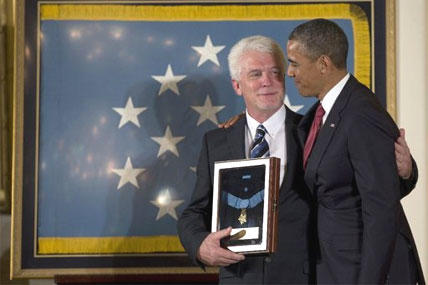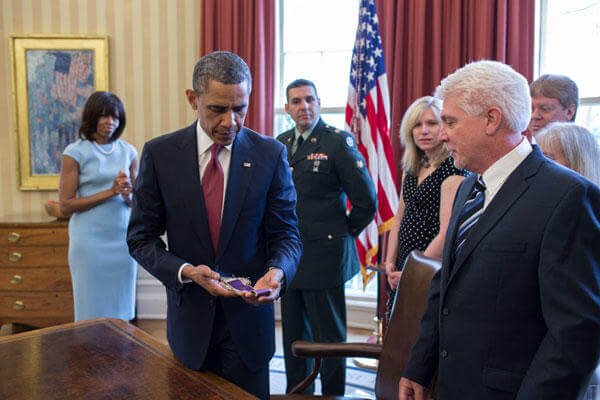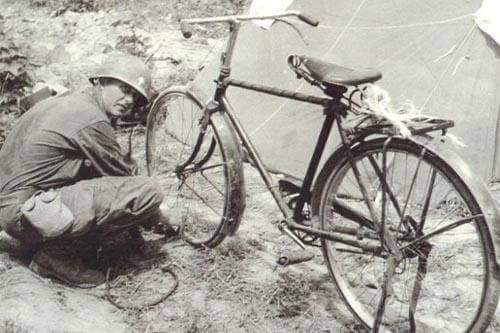Chaplain (Capt.) Emil J. Kapaun, known as the "Good Thief" to starving U.S. troops in a North Korean prison camp, was posthumously awarded the Medal of Honor Thursday by President Obama.
At a White House ceremony, Obama called Father Kapaun, a Roman Catholic priest, "an American soldier who didn't fire a gun, but who wielded the mightiest weapon of all -- a love for his brothers so pure that he was willing to die so they might live."
Kapan nourished the weak with bits of food he stole from the camp guards, but more importantly he nourished their souls with the power of his faith, Obama said.
"That faith -- that they might be delivered from evil -- was perhaps his greatest gift to those men," Obama said. "That even amidst such despair, there could be hope; amid their misery in the temporal they could see truths that are eternal; that even in such hell, there could be a touch of the divine."
Kapaun's nephew, Ray Kapaun, accepted the Medal for his uncle, who was the seventh chaplain and the only one who served in Korea to receive the nation's highest award for valor.
Kapaun foresaw a life of hardship and sacrifice. In a 1944 letter to his bishop, he wrote that "when I was ordained, I was determined to spend myself for God. I was determined to do that cheerfully no matter in what circumstances I would be placed or how hard a life I would be asked to lead."
In November 1950, Kapaun was serving with the 3rd Battalion, 8th Regiment, 1st Cavalry Division when Chinese communist forces attacked in overwhelming numbers. Kapaun ignored orders to evacuate and calmly walked the battlefield, tending to the wounded and comforting the dying.
After he was captured, Kapaun spotted a Chinese soldier who was about to execute a wounded American. Kapaun shoved aside the rifle muzzle and managed to save the U.S. soldier.
At the Pyoktong prison camp, Kapaun flouted the camp rules to minister to other POWs. He stole food and medicine, prayed with the troops and shaped pots from roofing tin to boil water from melted snow, the Medal citation said.
To punish him, the guards took Kapaun's clothes and made him stand outside in the bitter cold. He was later taken to an aid station that the U.S. POWs called the "death house," where he would die in May 1951.
One of the U.S. prisoners, Lt. Mike Lowe, recalled seeing Kapaun as he was taken to the aid station. Lowe told the Associated Press that Kapaun called out: "Hey, Mike, don't worry about me. I'm going to where I always wanted to go and I'll say a prayer for all of you."
Kapaun was from the small town of Pilsen, Kans., and Obama recalled his own Kansas roots on his mother's side in praising the latest Medal recipient.
"Now, I obviously never met Father Kapaun. But I have a sense of the man he was," Obama said.
"Emil and my grandfather were both born in Kansas, about the same time; both raised in small towns outside Wichita. They were part of that Greatest Generation -- surviving the Depression, joining the Army, serving in World War II. They embodied those heartland values of honesty and hard work, decency and humility -- quiet heroes determined to do their part."
In 1993, the Vatican declared Kapaun a "Servant of God," officially opening a potential path to sainthood for the "Good Thief" of the prison camp.


































